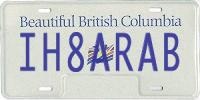1. Quote 1: “God who protects my people I call upon you to send away the murahaleen. Oh God of the sky, keep me safe tonight. Keep me hidden, keep me quiet.”
Page 97
Deng says this quote when he is hiding from the Arab group called the murahaleen, he is on the brink of being caught, and asks God to keep him safe. This quote reveals to the audience that the main character is a religious person, and that God is extremely close to him.
During this passage, he breaks his strict following of religion by questioning the existence of God. By saying “Why are you doing this? I have done nothing to ask for this. I’m a boy. I’m a boy. Would you send this to a lamb? You have no right.” This is the first time in the novel that he shows hesitance in the belief of God. This passage provides a theme to the novel, as the novel aims to question the existence of God and his/her inaction towards vile acts committed in Sudan. This passage also portrays the defeated attitudes that the citizens of Sudan have towards their lives, and that their lives have turned so ugly, that they question why their mighty God has not come and helped them in their time of need.
Quote 2:
“These are Arabs who have fallen to the level of the animal. They are like the lion, with its appetite for raw meat. These are not humans. These lion-creatures love war and blood. They enslave people, which is against the laws of God. They have been transformed into animals. Page 99
This quote occurs when he runs away from an Arab tribe that were close to catching him. This quotes details the character development that has progressed with Deng. He has matured from a quiet boy from a rich family in Sudan, to an angry, outspoken, and strong minded individual. This quote shows just how much hate Deng has for Arabs as he likens Arabs to vicious bloodthirsty animals. This quote adds great meaning to the overall novel, as it shows how quickly people can change their lives to adapt themselves to a new catastrophic event, such like a new era of civil war. In this case, Deng demonstrates how quickly we as human beings can turn on each other with relative ease.
2. IH8ARAB
I believe this would a license plate that would be apt for Deng, because so far through the novel, he has acted extremely vocal towards Arabs and he isn't afraid to use foul language to describe them. This offensive license plate shows that Deng wouldn't mind giving opinion to people around him and to people he may not even know.
His blunt opinion is expressed in Quote 2 as well as other quotes in the novel which show Deng’s hate towards Arabs.
Page 97
Deng says this quote when he is hiding from the Arab group called the murahaleen, he is on the brink of being caught, and asks God to keep him safe. This quote reveals to the audience that the main character is a religious person, and that God is extremely close to him.
During this passage, he breaks his strict following of religion by questioning the existence of God. By saying “Why are you doing this? I have done nothing to ask for this. I’m a boy. I’m a boy. Would you send this to a lamb? You have no right.” This is the first time in the novel that he shows hesitance in the belief of God. This passage provides a theme to the novel, as the novel aims to question the existence of God and his/her inaction towards vile acts committed in Sudan. This passage also portrays the defeated attitudes that the citizens of Sudan have towards their lives, and that their lives have turned so ugly, that they question why their mighty God has not come and helped them in their time of need.
Quote 2:
“These are Arabs who have fallen to the level of the animal. They are like the lion, with its appetite for raw meat. These are not humans. These lion-creatures love war and blood. They enslave people, which is against the laws of God. They have been transformed into animals. Page 99
This quote occurs when he runs away from an Arab tribe that were close to catching him. This quotes details the character development that has progressed with Deng. He has matured from a quiet boy from a rich family in Sudan, to an angry, outspoken, and strong minded individual. This quote shows just how much hate Deng has for Arabs as he likens Arabs to vicious bloodthirsty animals. This quote adds great meaning to the overall novel, as it shows how quickly people can change their lives to adapt themselves to a new catastrophic event, such like a new era of civil war. In this case, Deng demonstrates how quickly we as human beings can turn on each other with relative ease.
2. IH8ARAB
I believe this would a license plate that would be apt for Deng, because so far through the novel, he has acted extremely vocal towards Arabs and he isn't afraid to use foul language to describe them. This offensive license plate shows that Deng wouldn't mind giving opinion to people around him and to people he may not even know.
His blunt opinion is expressed in Quote 2 as well as other quotes in the novel which show Deng’s hate towards Arabs.

 RSS Feed
RSS Feed